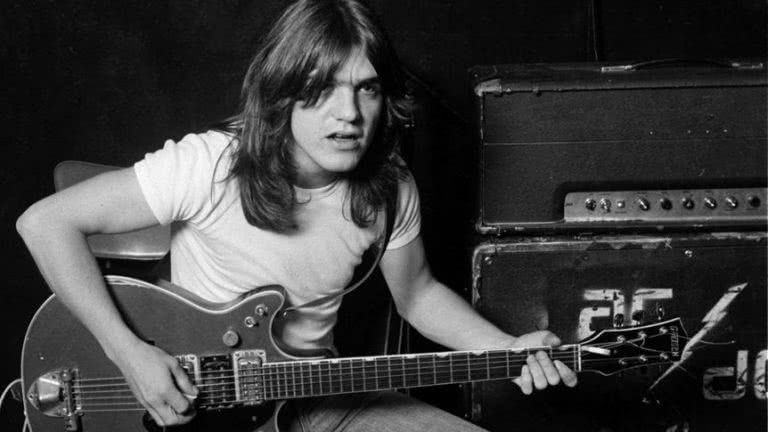In a poignant new interview, AC/DC guitarist Angus Young has reflected on the death of his brother and bandmate, Angus Young, who passed away in 2017.
Angus Young recently sat down with 60 Minutes, for an extensive album delving into the latest full-length AC/DC offering, Power Up, which dropped last week.
Malcolm Young passed away aged 64, after a battle with dementia — which forced him to leave the band back in 20114. The influential rhythm guitarist is credited as a writer on every song on Power Up.
The interview saw Angus recall the final days of Malcolm’s day, revealing that the stalwart rocker found solace in music after being moved to a nursing home in Sydney.
“I think the hardest part was not so much him passing, because that was a kind of end, a relief,” Angus said. “I think the worst part is the decline — that’s the hard part. Because of how you knew him, and then to see that that was gone.”
He continued, “I would say, even to the end, if I was there, from ear to ear he had a big smile.
“And for me, that always gave me a kind of joy. Even though he was in that state, that was always the joy of it. And he still got a great kick if I played him guitar. He would try to tap his foot. But he always knew I was there. So that was a big thing. I was with him towards the end.”
Love Music?
Get your daily dose of metal, rock, indie, pop, and everything else in between.
Brian Johnson mused that losing Malcolm was a “very emotional” experience. “It’s all too soon, innit?” he said. “It’s too quick and too soon.”
The influence of Malcolm Young permeates through the band’s latest effort. The band’s sound engineer Mike Fraser discussed his influence in detail earlier this year.
“I think Angus kind of came into this with a lot of ideas and riffs and not too many completed songs,” Fraser mused. “But that was similar on Rock Or Bust, ‘cos him and Malcolm had written tons of songs before Mal got sick and eventually passed away.”
He continued, “So he’s got a whole treasure trove of ideas and riffs and all that. He’s probably spent a few years before we came in to do this record pooling ideas together and all that, and then when he came into the studio here, he just sat down with a whole suitcase full of little demo things he had done.


































